Weil Institute celebrates the future of resuscitation science through legendary Wolf Creek Conference
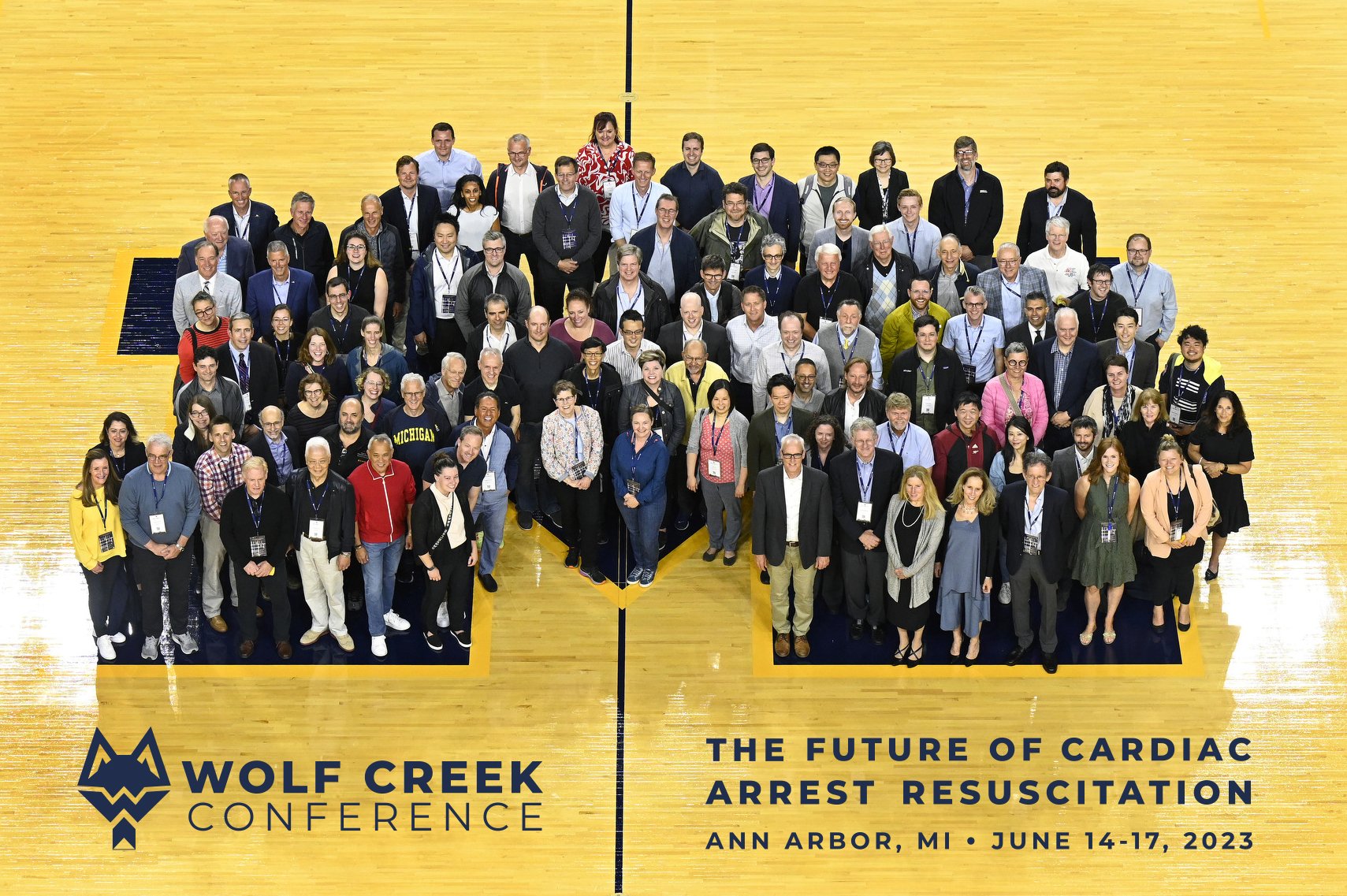
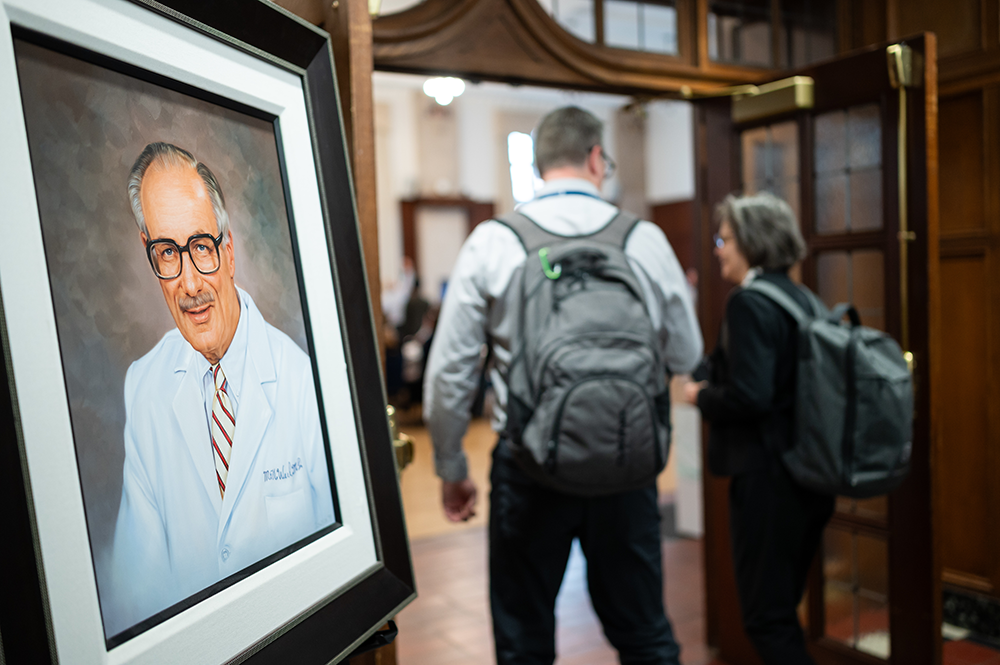
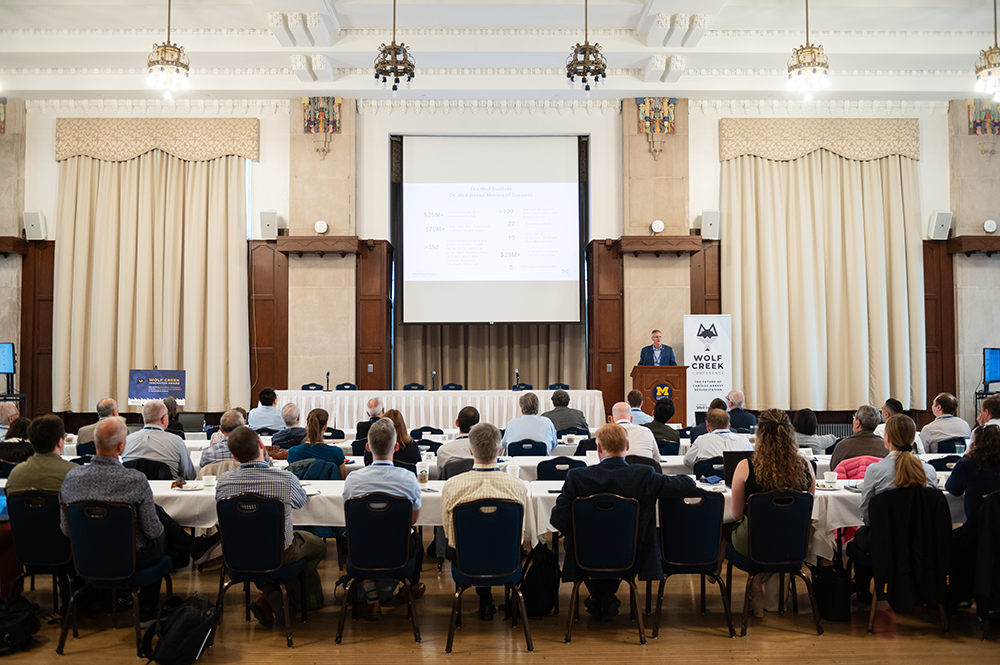
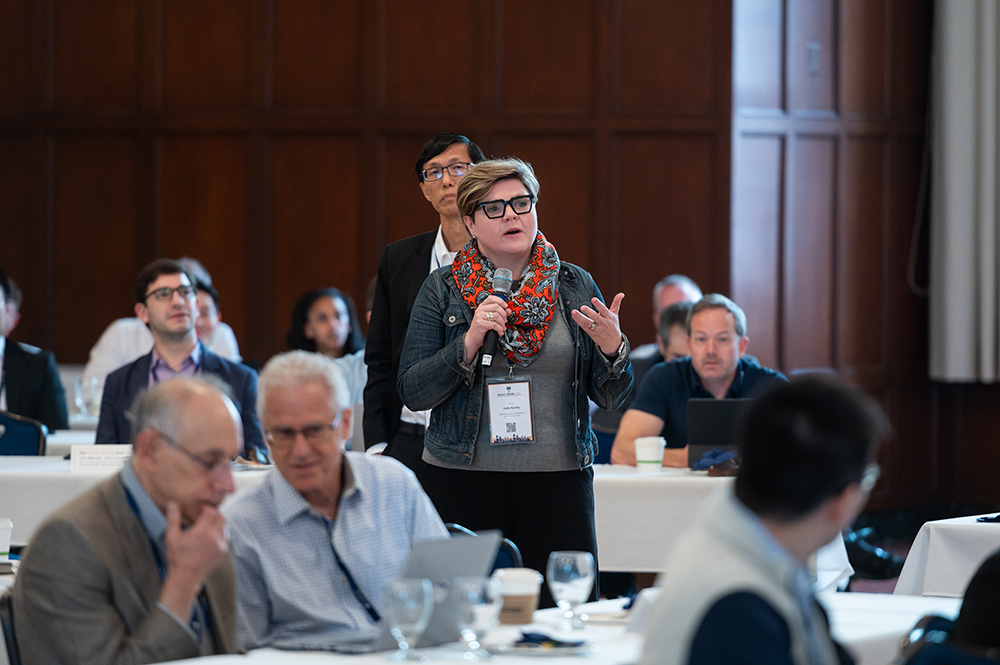
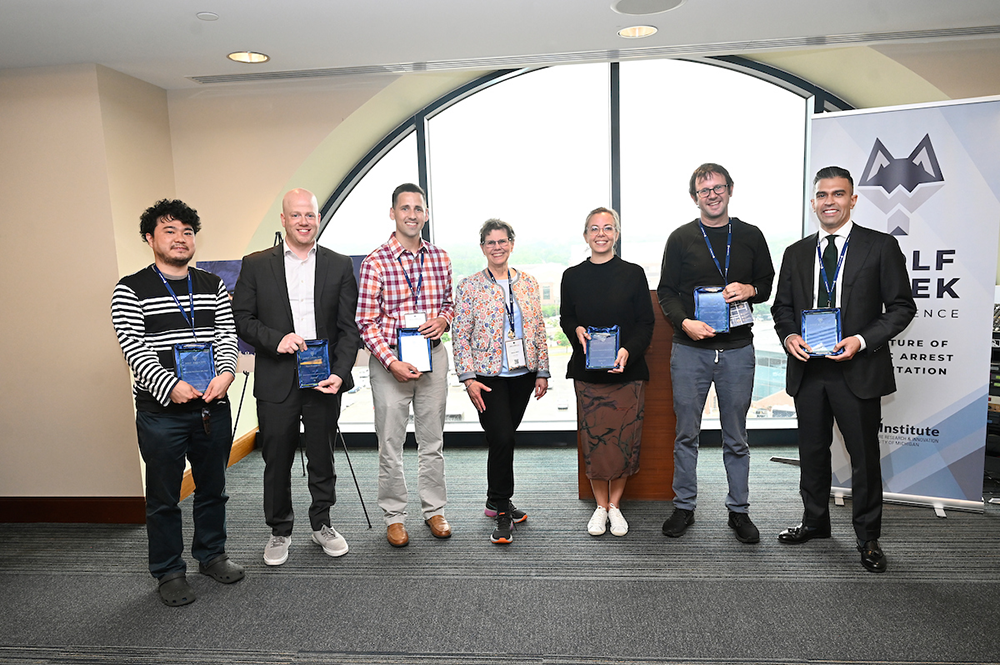
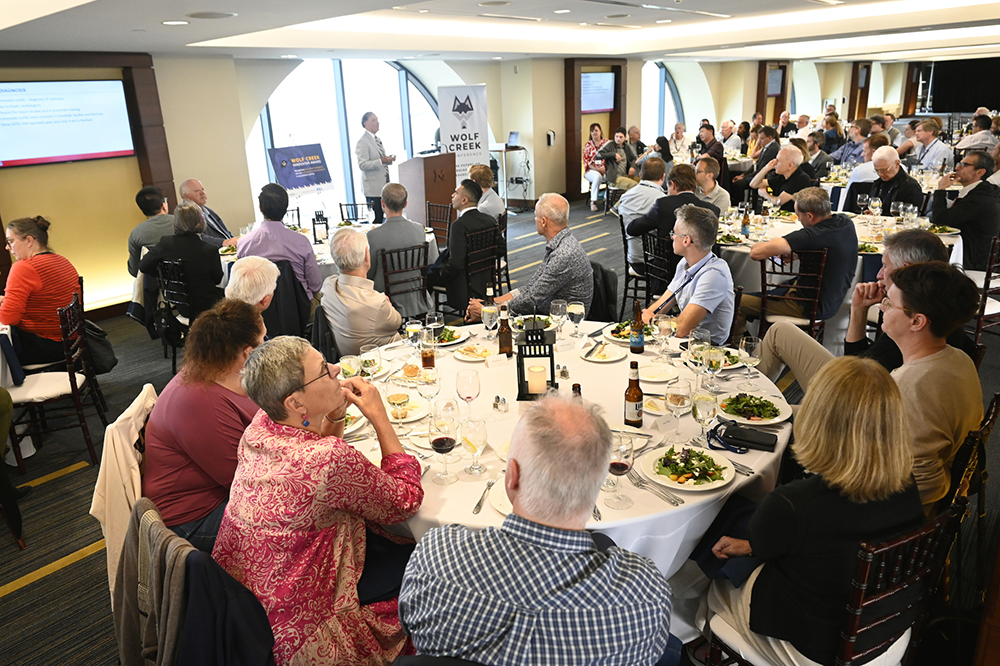
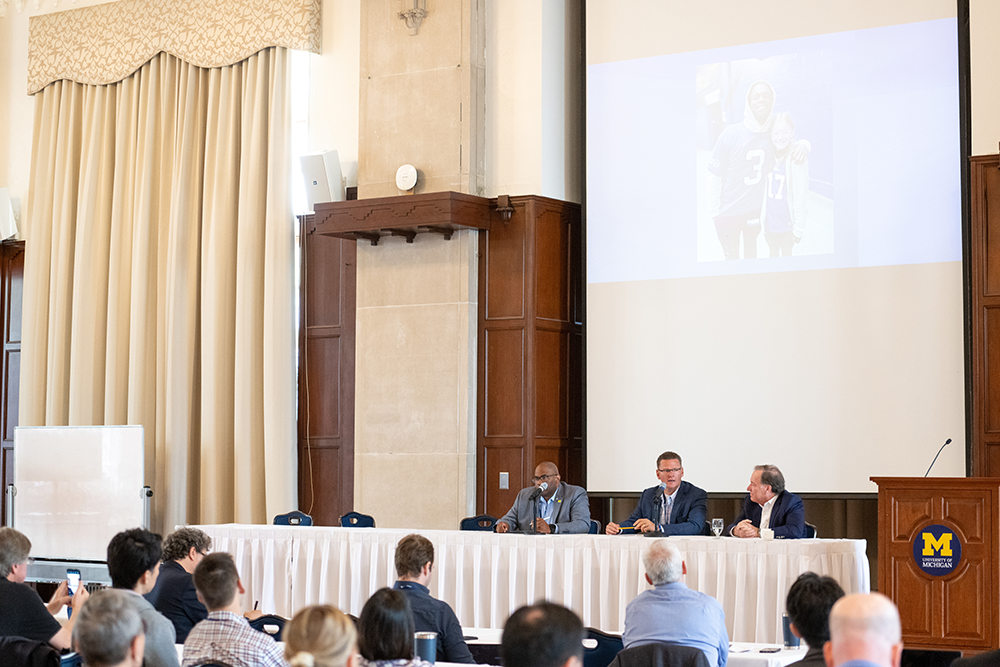
The Weil Institute’s latest implementation of the historic meeting brought new faces and ideas to a longstanding tradition.
Contact:
Katelyn Murphy,
Marketing Communications Specialist, Weil Institute
mukately@med.umich.edu
ANN ARBOR, MI – From June 14 to June 17, Ann Arbor became the global epicenter for cardiac arrest research as over 100 of the field’s foremost thought leaders and innovators converged for the seventeenth Wolf Creek Conference. Hosted by the University of Michigan’s Max Harry Weil Institute for Critical Care Research and Innovation, this year’s iteration of the longstanding tradition in resuscitation science marked the largest attendance to date with dozens of new faces and ideas all united under the same goal that has driven Wolf Creek since the very beginning—fostering a robust exchange of ideas and debate to transform the future of cardiac arrest care.
The first Wolf Creek Conference was led by early resuscitation science pioneers Drs. James Elam, James Jude and Peter Safar in 1975 at Dr. Jude’s “Wolf Creek Lodge” in Georgia. The objective was to improve the clinical practices of cardiopulmonary resuscitation (CPR) by stimulating laboratory and clinical research, with the conference proceedings later published by Drs. Safar and Elam as part of a monograph entitled Advances in Cardiopulmonary Resuscitation. In 1996, the Institute of Critical Care Medicine and University of Southern California School of Medicine would take on the role of host, with subsequent conferences continuing to be hosted by the Institute and often chaired by Drs. Wachun Tang and Max Harry Weil. The conference has continued to grow and push momentum for improving the science of CPR ever since.
The Wolf Creek XVII Conference was structured around six discussion panels that covered key areas of scientific advancement interest in cardiac arrest research and CPR, including automated cardiac arrest diagnosis, amplifying bystander response, mobile AEDs, physiology-guided CPR, mechanical circulatory support and neuroprotection. Using an interactive online ranking system, attendees voted on what they thought were the top knowledge gaps, barriers to translation and research priorities in each topic. Similar to early Wolf Creek meetings, the goal was to fuel active discussion from leading experts to determine where future research efforts should be focused. The final prioritized list of gaps, barriers and priorities for each of the six topics will be published with the conference proceedings at a later date.
“This was such a unique way of getting the greatest minds in the field of resuscitation science together to exchange ideas,” said Dr. Steven Brooks, Associate Professor of Emergency Medicine at Queen’s University in Ontario, and co-moderator of the “Mobile AEDs” panel. “This meeting is legendary in resuscitation science circles, so it was such an honor to be invited. Being in the same room with so many thinkers and innovators was inspiring and has helped me to envision the future direction of my own research program.”
"This meeting is legendary in resuscitation science circles, so it was such an honor to be invited. Being in the same room with so many thinkers and innovators was inspiring and has helped me to envision the future direction of my own research program."
Steven Brooks, MD, MHSc, FRCPC
Associate Professor, Emergency Medicine, Queen's University
Ontario, Canada
Building off of the conference’s theme of “The Future of Cardiac Arrest Resuscitation”, the Weil Institute introduced another new component to the 2023 meeting—the “Wolf Creek Innovator Award”. The purpose of this award was to recognize early career investigators who were challenging current paradigms in resuscitation science. Six finalists from around the world were invited to present their work at Wolf Creek. The winner, selected by audience vote, was Dr. Ryan Morgan, a pediatric critical care physician at the Children’s Hospital of Philadelphia, who received $10,000 to further support his research.
Additional guest speakers at Wolf Creek included Jerry Parris, a cardiac arrest survivor; Darryl Conway, Senior Associate Athletic Director for Michigan Athletics; Dr. Jim Ellis, Chief Medical Officer for the United States Football League (USFL); and Danny Kellington, Assistant Athletic Trainer for the Buffalo Bills whose prompt initiation of CPR helped save the life of Bills safety Damar Hamlin when Hamlin went into cardiac arrest during a game earlier this year.
“The Wolf Creek Conference provided a platform for early career researchers to foster collaborations, inspire excellence in future research, and learn from the pioneers of resuscitation science,” said Dr. Adam Gottula, a critical care fellow in the Michigan Medicine Department of Anesthesiology and one of the inaugural Wolf Creek Innovator Award competitors. “I’m incredibly thankful for the opportunity to learn from these visionaries as we look to the future of cardiac arrest resuscitation!”
When the torch of Wolf Creek host first passed to the Weil Institute at the University of Michigan in the spring of 2022, the Institute’s Marketing and Events teams were ready to re-envision the tradition, welcome a global audience, and firmly cement U-M and the Weil Institute as the place for cardiac arrest and resuscitation science innovation.
“They were truly a championship team that did an incredible job designing and implementing our first iteration of the Wolf Creek Conference,” said Dr. Robert Neumar, Chair of the Wolf Creek Program Committee and Professor and Chair of Emergency Medicine. “National and international recognition of the Weil Institute has grown exponentially due to their efforts.”
While June 17 may have marked the close for Wolf Creek 2023, planning for the next in 2025 has already begun. The 2025 conference will mark Wolf Creek’s fiftieth anniversary since its inception, so guests can expect even more engaging ideas and surprises to come.
About the Weil Institute
The team at the Max Harry Weil Institute for Critical Care Research and Innovation (formerly the Michigan Center for Integrative Research in Critical Care) is dedicated to pushing the leading edge of research to develop new technologies and novel therapies for the most critically ill and injured patients. Through a unique formula of innovation, integration and entrepreneurship that was first imagined by Weil, their multi-disciplinary teams of health providers, basic scientists, engineers, data scientists, commercialization coaches, donors and industry partners are taking a boundless approach to re-imagining every aspect of critical care medicine. For more information, visit weilinstitute.med.umich.edu.

